Struggling on in the South West
- Published
Fierce winds and heavy rain have battered the south-west of England for weeks and more dire weather is forecast in the coming days.
The BBC's Michael Hirst is travelling around the West Country meeting those caught in the worst of the storms and floods and recording their experiences.
On Sunday in Cornwall he found stoical people in coastal communities, who may have lost earnings, fishing gear or property, but were thankful the storms had caused few casualties.
On Monday he travelled inland to flooded parts of Somerset.
Monday 10 February

Ian Webber, farmer, runs Moorlands Farm in East Lyng, Somerset.
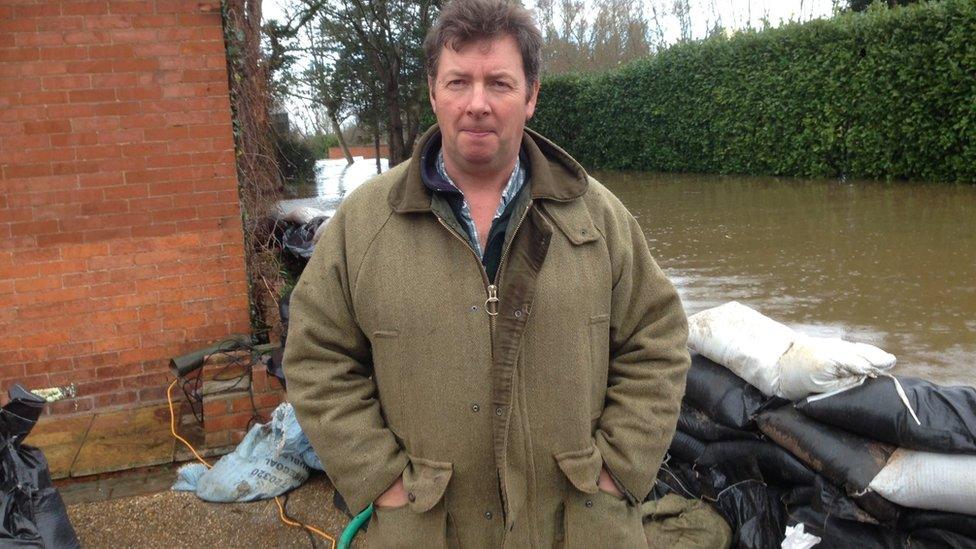
Ian Webber and about 20 of his family and friends spent three days building a barrier around the building - comprising 22 tonnes of sandbags (2,000 in all) and 10 pumps. If there's a power cut, those pumps will fail and so might the dam. But for now, the primary concern is the rising water levels. "If it comes, it comes," said Mr Webber, 49. "We've done everything we can."
Will Barnes and Ian Shopland on the fight to save equipment before the floodwater rose too high at Moorlands Farm
Farm workers Will Barnes and Ian Shopland fear the level of damage that will be revealed when the water subsides

Despite the amazing community spirit in East Lyng, there are some dark undertones. Why had no action been taken against rising water levels for so long? "Our neighbour's house was flooded on 16 January, they moved out last Wednesday - no-one visited them in all that time," said Mr Webber. And there are worries about looting. Mr Webber said police had caught three opportunist thieves on Friday night - apprehending them as they targeted evacuated houses.
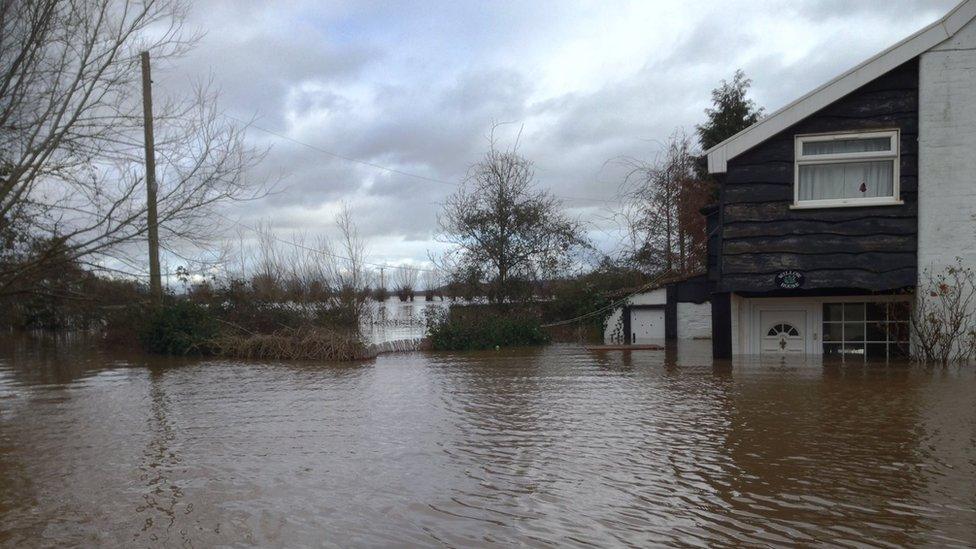
Some homes in East Lyng have been flooded since the middle of January. People are steeling themselves for the possibility that waters could rise up to 18in in the next couple of days.

Jennifer and Hywel Jones, retired, live on a hill in East Lyng.
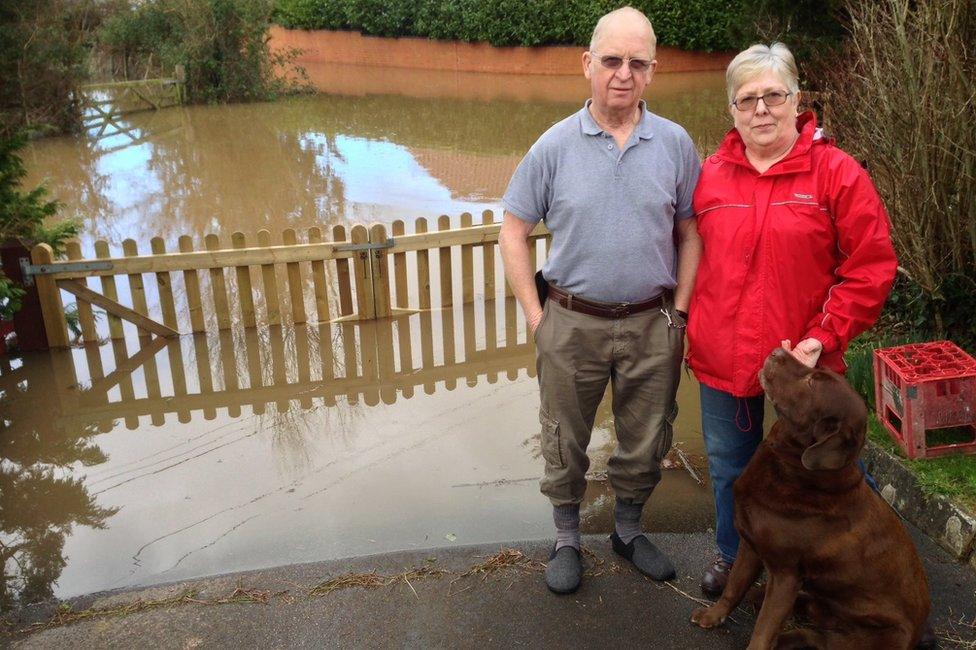
Nearby homes have been evacuated but, although flood waters have been rising, the couple are staying put - for now. "We've still got electricity and water, so our main concern is if the sewerage system fails. If the electricity goes we can get our meals from the Rose and Crown up the street. But we're lucky here - if we flood, Bridgwater will be gone, for sure."

Sue Sherry is on the village flood committee at Ruishton near Bridgwater in Somerset.
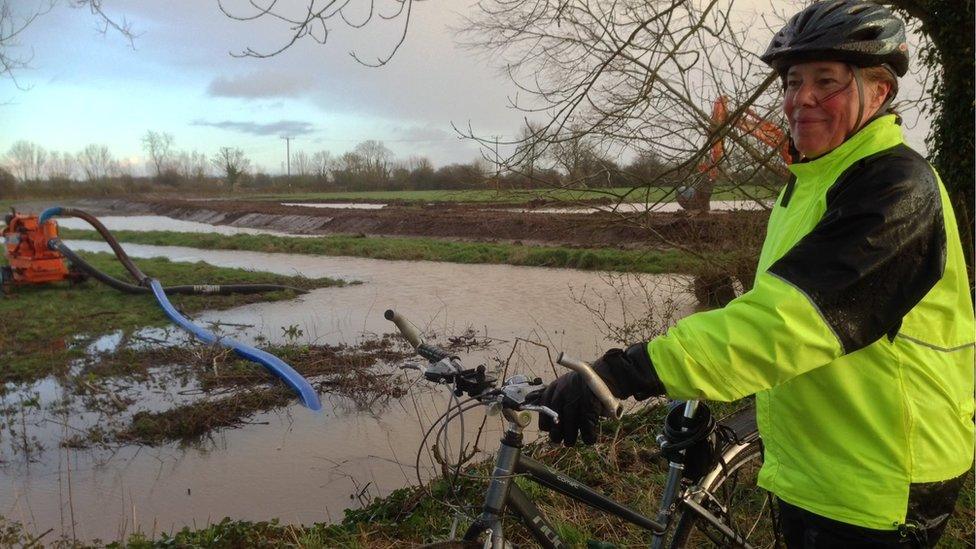
There is a major engineering operation to build new flood defences near Bridgwater on the Somerset levels. Lorries carrying rubble, pipes and digging machinery are winding down narrow country lanes, as are vans and 4x4s carrying police, army and Environmental Agency officials. "I'm happy with the Environment Agency's response - and particularly the fact they're going to be defending farmland as well as housing," said Ms Sherry. "But that dam doesn't look very big, does it?"

Plymouth station
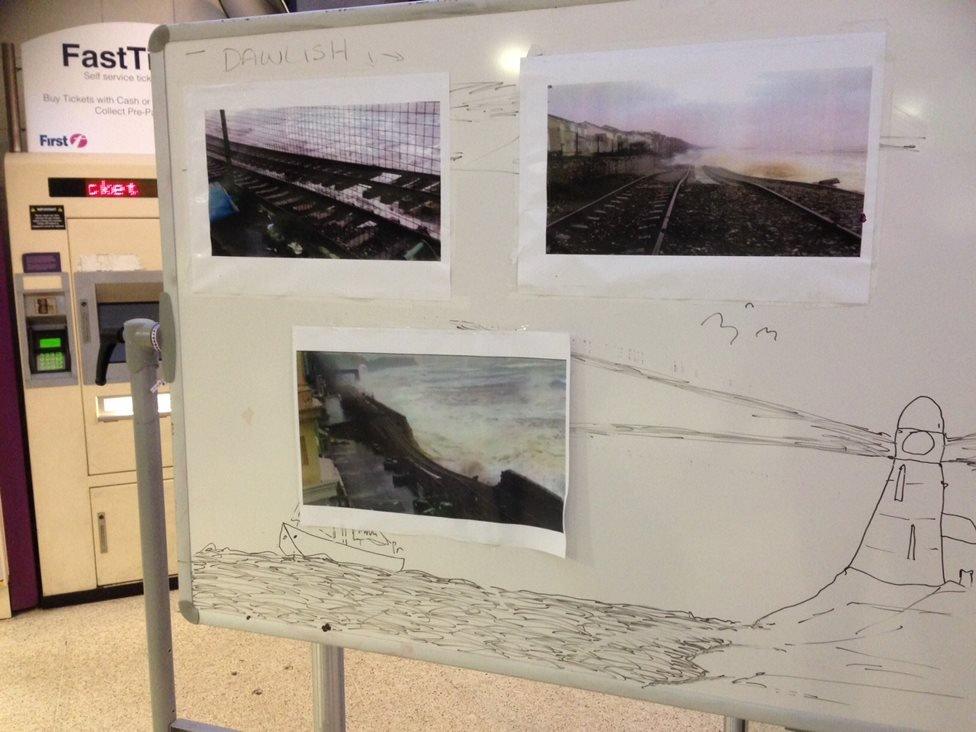
A picture - or three - speaks a thousand words at Plymouth railway station. The images help explain that, with the track at Dawlish, 40 miles east, severely damaged by waves, there is no London-bound train service from Plymouth. "People are being good about it though - most of them were forewarned and made other arrangements," said a member of the station staff. Passengers are being rerouted via Bristol, with rail replacement buses every half hour.

Sunday 9 February

The Reverend Philip de Grey-Warter is the vicar of St Fimbarrus Church in Fowey.
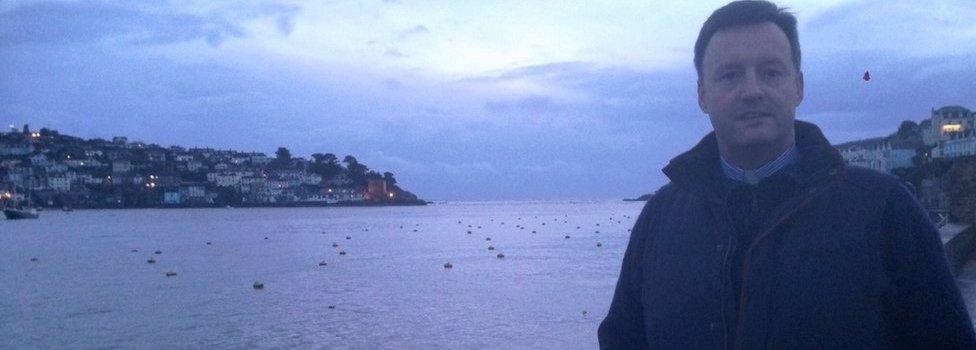
Fowey residents are used to flooding, he says. A high spring tide combined with low pressure and a strong wind can flood lower parts of the town. But while his community is used to one flood every five seasons, the town has flooded half a dozen times already this winter. "It's the relentlessness of it that's getting to people. They're weary. Everyone's talking about the weather and it just reminds us that we're not in control and we need to look beyond ourselves," he says. "We like to think that we're masters of our own destiny and this weather serves to remind us how small we are. One of the shopkeepers asked me if I could do something about the weather and I said, 'No, but I know a man who can.'"

Joe McKnight, 20, is a barman at the Sloop Inn in St Ives.
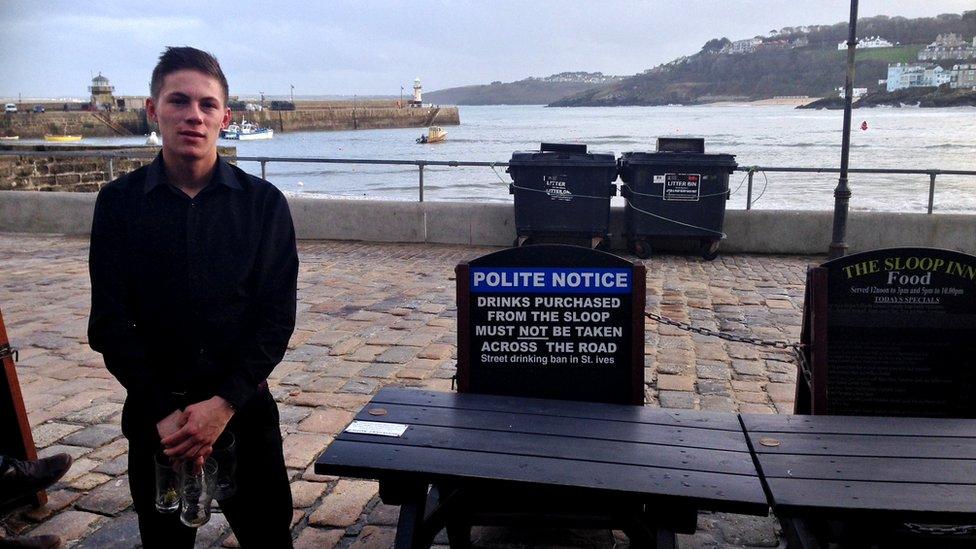
Many businesses in St Ives have been badly hit with people staying away as a result of the rainy weather, but not the Sloop Inn. "It's been really busy during the worst storms as people come down here to take photos of the waves," says Mr McKnight.

Ian Luke owns Hayle Golf.

Extreme sports fans have been treated to nautical acrobatics off the coast of Hayle this weekend at the Red Bull storm chaser windsurfing event. But other sports are suffering. Mr Luke says business is down 15% on last year. "Even the driving range is struggling because players don't want to hit balls into a swirling wind," he says.

Barry Chapel, 70, is the sign photographer at Land's End.
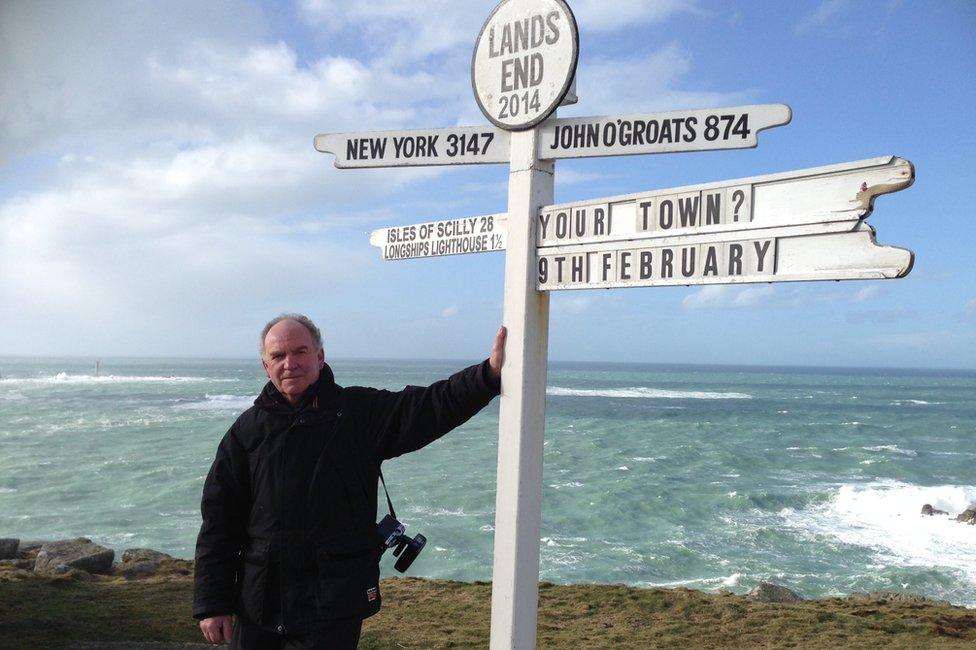
"We take the sign down at night, but these storms have been the first time in 14 years we've had to take it down during the day," says Mr Chapel.

James Roberts, 21, is a fisherman in Newlyn and an RNLI lifeboat volunteer.

"Apart from one day in January, last time I was out was the first week in December," says Mr Roberts. "If we hadn't had a good summer, it would be a massive blow for me. With taxes being paid in January, mooring fees and boat maintenance, fishermen have lots of outlay and nothing coming in. I dread to think what some of the smaller boats are dealing with when they haven't been making any money for two months."

Patrick Harvey is the coxswain at RNLI Penlee lifeboat station and works closely with the fishing community.
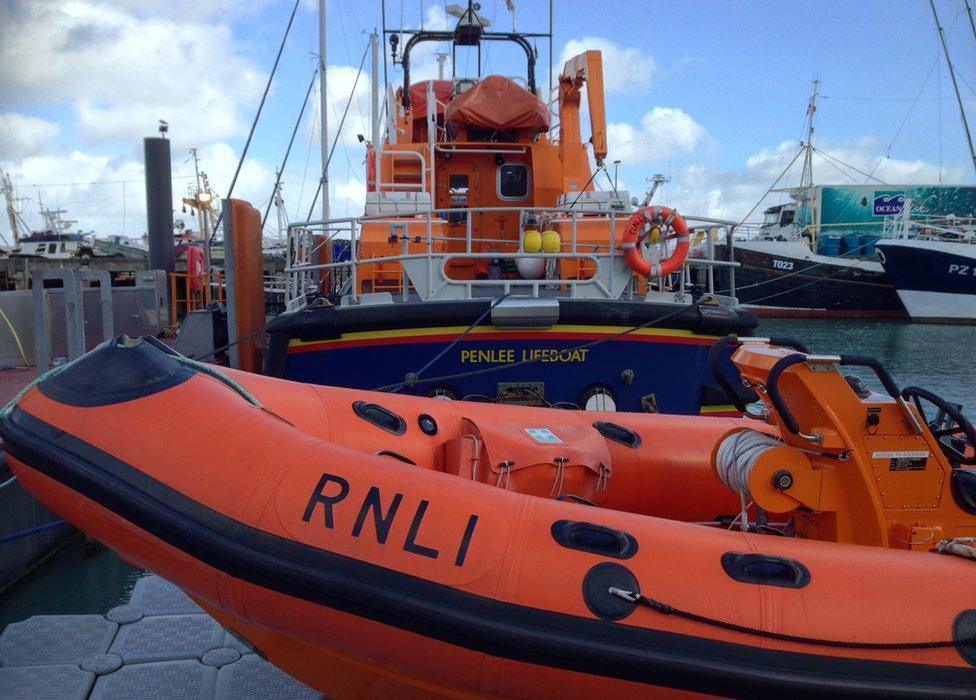
A fisherman for more than 20 years, Mr Harvey says there has been only one day's fishing since December, and the lack of business was hitting local industry hard.

Josephine Wall is a retired mother of three from Porthleven.
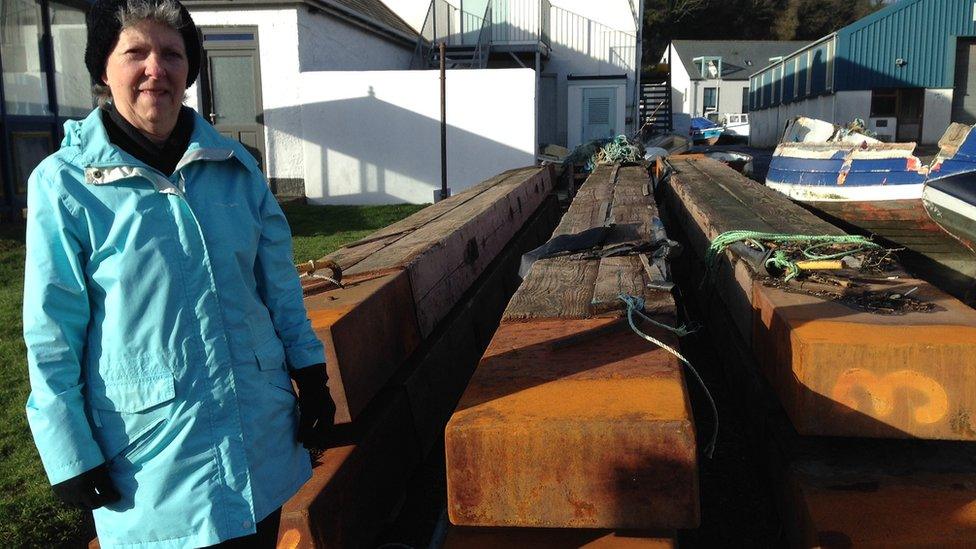
Josephine Wall says the 2.5 tonne baulks that stop swell from entering the harbour had snapped "like matchsticks" in recent storms. "The force of the sea has been unbelievable. They've had to take all the boats out of the harbour. And they haven't done that for more than 100 years."

Jeremy Richards, 47, has been sailing around the Cornish coast for 40 years. He says he feels lucky to still have a boat.